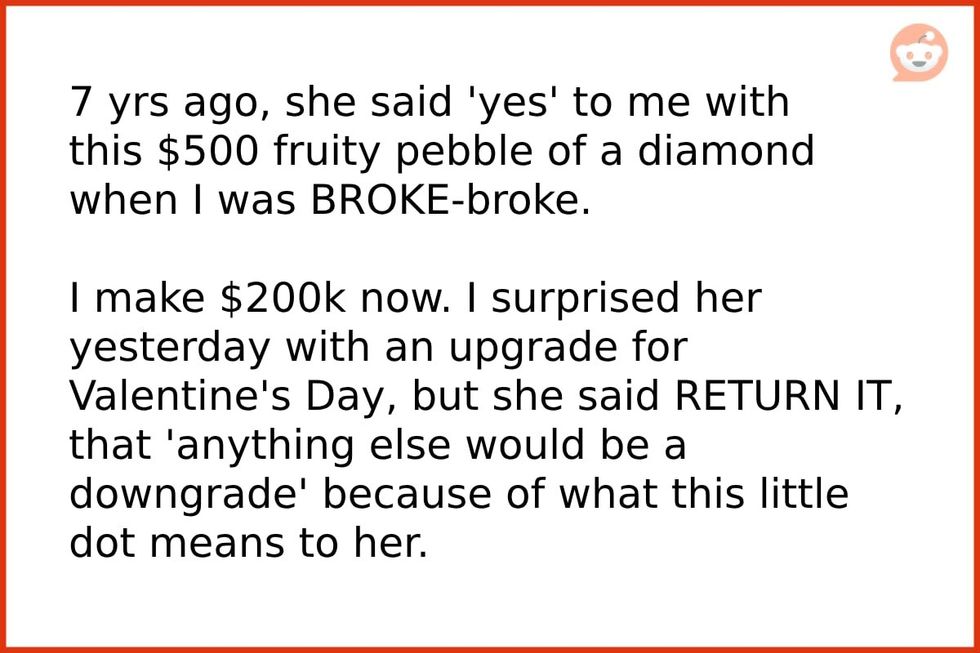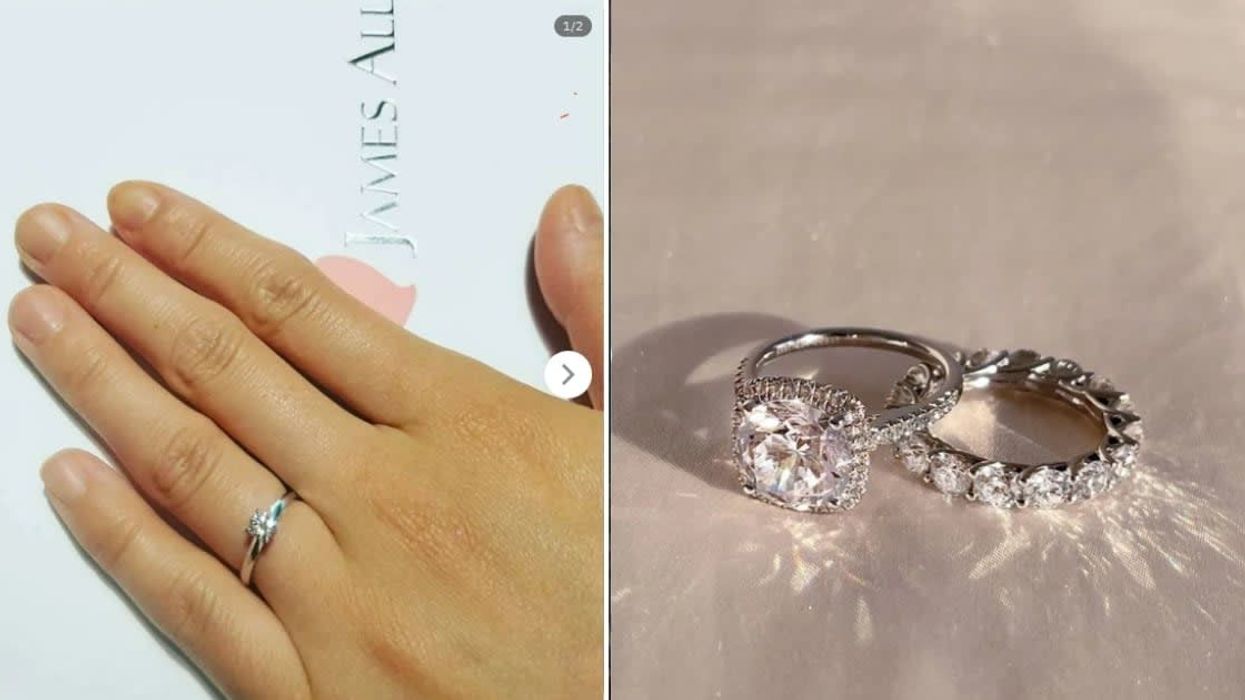"I like shiny things but I'll marry you with paper rings," Taylor Swift croons in her song "Paper Rings." There's also a famous quote from "Devil Wears Prada" that goes, "I got the man, I don't need the flowers." Now a diamond might be forever, but it's love that makes it worth it. The point is if you have someone you love, big diamonds shouldn't matter as much. In this materialistic world, it might be difficult to believe that love can be enough, but this couple's story on Reddit will reinforce your faith in such a world. A man took to Reddit to share his love story on Valentine's Day and in times when believing in love is getting increasingly difficult, this little story might make you a little emotional. The man wrote, "7 years ago, she said 'yes' to me with this $500 fruity pebble of a diamond when I was BROKE-broke. I make $200k now. I surprised her yesterday with an upgrade for Valentine's Day, but she said 'RETURN IT,' that 'anything else would be a downgrade' because of what this little dot means to her." The man uploaded the photo of his wife's adorable "fruity pebble" ring as well as of the upgrade he got for her which she had rejected. He also added, "So I am returning this $8k upgrade and I'm taking her to Korea and Japan this winter instead for the same price." Now, if this isn't love, we don't know what is.

The story shows that the emotion with which you give something matters more than the thing itself. The man gifted his girlfriend and now wife a tiny ring which was the best he could afford. Probably, this simple gesture must have won her heart in a way no gigantic diamond could ever win. Women are increasingly taking charge of what they want and a lot of times, love is more than enough. The couple has truly won a diamond through each other. People in the comments celebrated their love and appreciated both of them for their respective gestures. The comments also took a hilarious turn at some point and a discussion about the supremacy of "Fruity Pebbles" over cinnamon toast crunch ensued, Nonetheless, the post was an ideal celebration of love on Valentine's Day.
A Reddit user @Proud-Fox8650 wrote, "Brother you’ve found a hell of a diamond, I ain’t talking about the rocks." Another user @Ocelot859 commented on fruity pebbles and wrote, "I just wanted to take the opportunity to say that Fruity Pebbles are fucking delicious. I don't think they top Cinnamon Toast Crunch for me, but they are dangerously close." This started an argument on fruity pebbles vs cinnamon toast crunch. The Reddit user who posted the thread commented, "Wow, this was so beautiful and romantic. You're right. I think I was secretly insecure with the fact that I couldn't afford anything "bigger"/"better" but now that I look at it, that's just a byproduct of all the stupid Instagram/ consumerism culture that's plagued our generation. My wife reminded me last night that true wealth in life is outside of your financial portfolio. 'Some people are so poor, that all they have is money.'"




















 Regular exercise and a balanced diet are cornerstones to aging well.
Regular exercise and a balanced diet are cornerstones to aging well.


 Oral Wegovy pills were approved by the Food and Drug Administration in December 2025 and became available for purchase in the U.S. in January 2026.
Oral Wegovy pills were approved by the Food and Drug Administration in December 2025 and became available for purchase in the U.S. in January 2026. Despite the effectiveness of GLP-1 drugs for weight loss, there is still no replacement for healthy lifestyle patterns, including regular exercise.
Despite the effectiveness of GLP-1 drugs for weight loss, there is still no replacement for healthy lifestyle patterns, including regular exercise.


 What foods would you pick without diet culture telling you what to do?
What foods would you pick without diet culture telling you what to do?  Flexibility can help you adapt to – and enjoy – different food situations.
Flexibility can help you adapt to – and enjoy – different food situations.
 Anxious young woman in the rain.Photo credit
Anxious young woman in the rain.Photo credit  Woman takes notes.Photo credit
Woman takes notes.Photo credit